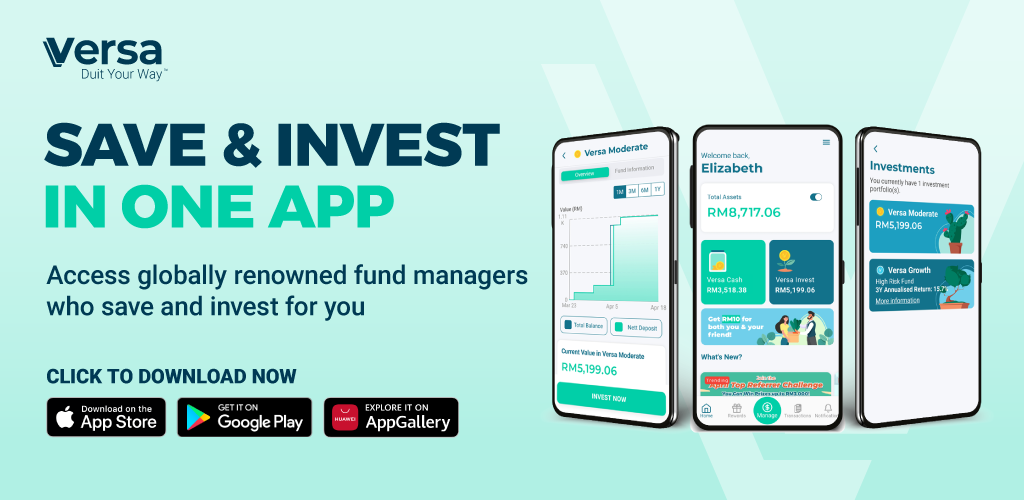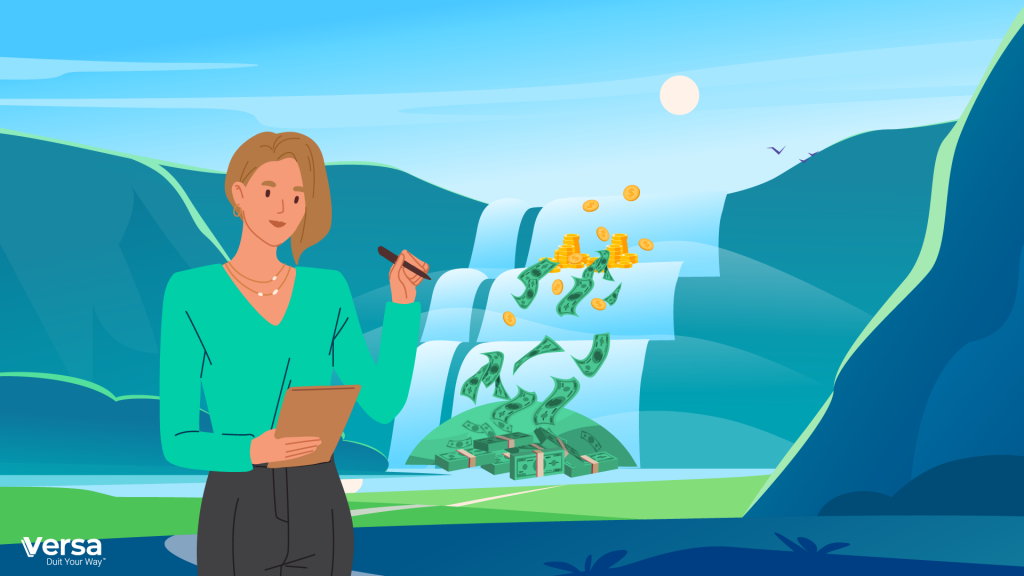
Waterfalls are great. But what’s it got to do with money?
Imagine your cash pooled at the top. Your cash eventually has to flow down i.e be spent. But how do you decide where your cash flows first and what’s at the end?
The waterfall method can help you prioritize by explaining where your money should go first, and then where any extra money should go. Bonus: this method is perfect for planning your retirement.
So let’s dive right in.
In this article
- End your high-interest debt
- Build an emergency fund
- Maximize your employer match
- Make use of your taxes
- End your low-interest debt
- Plan your financial goals
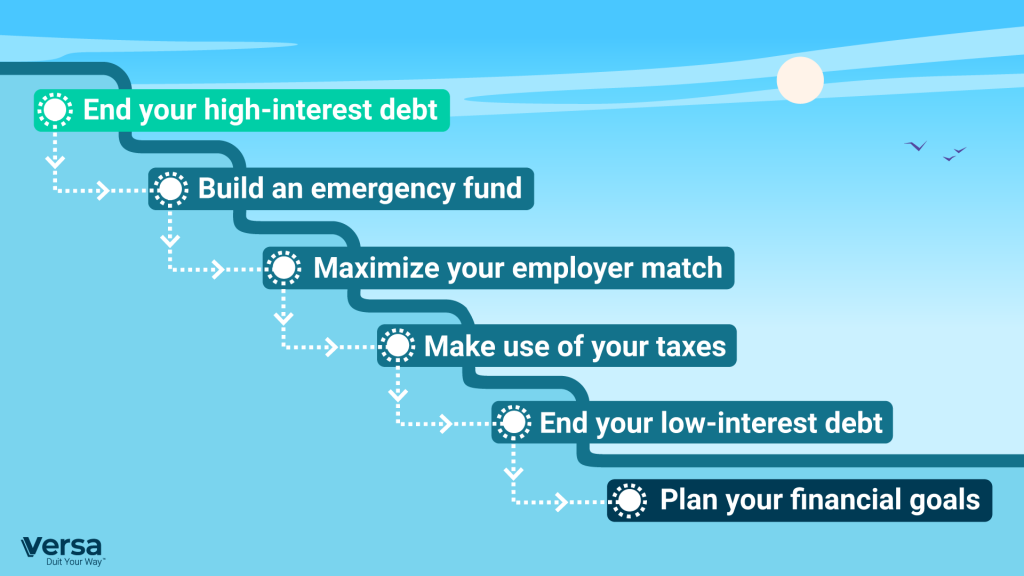
1. Start the Waterfall Method by ending your high-interest debt
We’re not gonna lie – debt is inevitable. What we can control though is how we deal with debt.
For example, if you have loans with an interest rate over 5%, you need to prioritize paying those off before anything else. This is because you’ll be paying more in interest than you’d make on pretty much any investment. In short: by not paying down your debt, you’ll be losing money.
2. Build an emergency fund as part of your cash waterfall
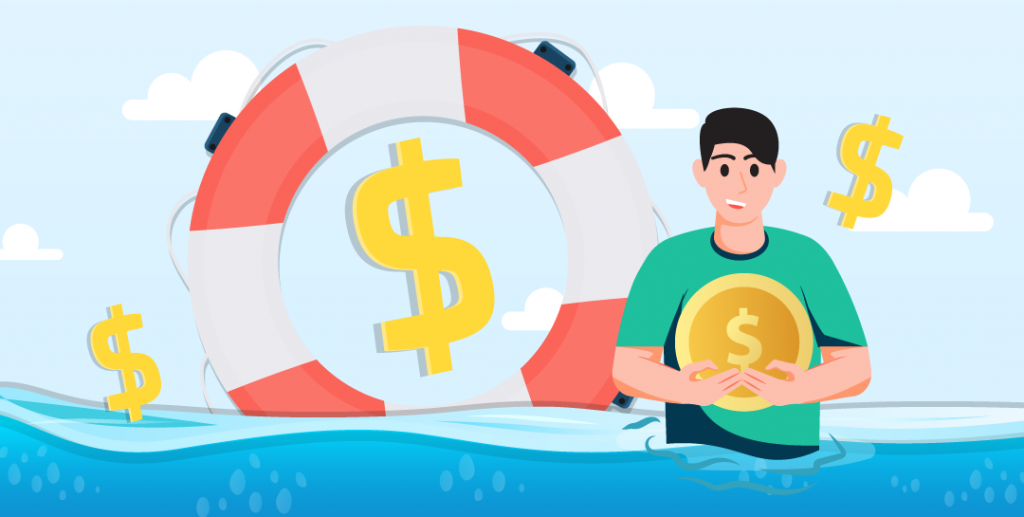
We’ll never know what will happen. An emergency fund can help cushion any unexpected huge expenses such as a surgery, job loss, or accident. This way you won’t be in debt and have to restart the waterfall.
The recommended amount for your emergency fund is 3 to 6 months of your usual spending.
>>> Start building your emergency fund with us
3. Optimize the Waterfall Method – Maximize your employer match
If you have an Employees Provident Fund account, don’t let it go to waste! It’s basically free money. Each month, a small percentage of your pay will be set aside for your retirement. Your company is required to match that percentage and contribute that to your EPF account.
You can opt between contributing 9% or 11% of your pay. Go for the higher percentage! Your employer will match that percentage. Not gonna lie, you’ll have less spending power now but it will be incredibly worthwhile when you retire.
4. Make use of your taxes for a better cash flow waterfall
Taxes can be annoying and take a chunk of your spending money. However, getting smart about taxes can be a game-changer. There are several tax reliefs that can be used to your advantage. For example, did you know that you utilize a tax relief of up to RM2,500 for any purchase of personal computer, smartphone or tablet which is not for business use? You can also claim for tax relief of up to RM7,000 if you’re paying for your own education fees.
5. End your low-interest debt – an integral part of the Waterfall Method
So you’ve resolved your high interest debt, built your emergency fund, got free money from your employer AND the government.
Now’s your chance to pay off that low-interest debt like your housing loan or student loan. Why? With the interest charged, it still eats into your savings and your potential earnings.
6. Final layer of the waterfall model – Plan your financial goals
Congratulations, you’ve got your $$$ sorted out!!
It isn’t over yet. Your leftover money is brimming with potential and it’s in your hands to decide what to do with it. Think of the goals that you want to achieve such as purchasing a new car, building your children’s education, your retirement?
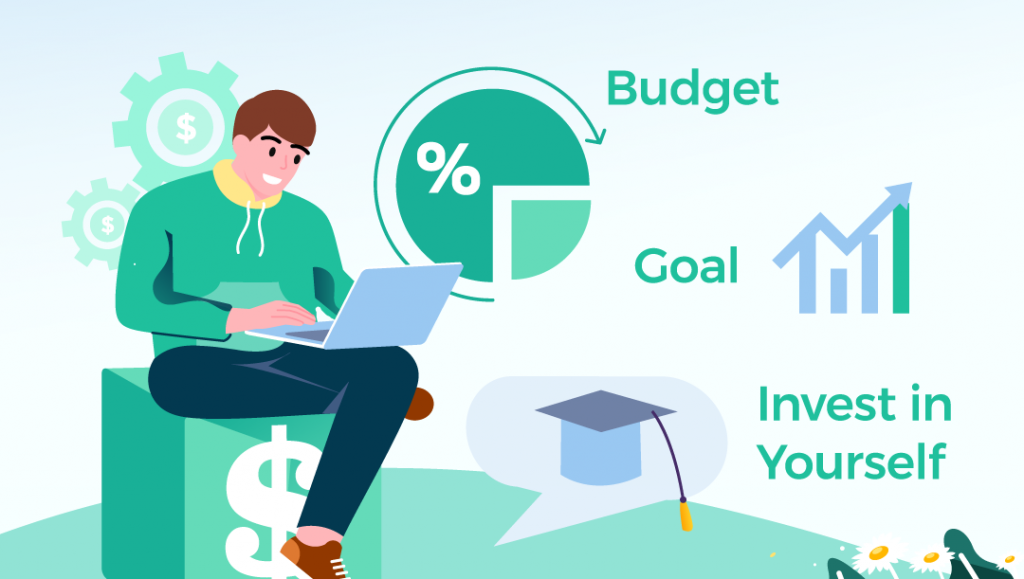
With the excess cash, you can decide to unlock its potential by investing it or putting them in high-yield savings accounts. If you are not sure what to do with your funds, then park it in Versa Cash. Just like not paying your high interest debt, you lose out on potential earnings by leaving your cash in a bank account with near zero interest rate. With Versa Cash, you can withdraw anytime which makes it perfect when you plan to withdraw in the near future.
Knowing your financial goals helps you pick the right place to put your money. Long-term financial goals? Go for higher risk investments where it can wait out the downs of the market.
If you don’t know where to start, start with Versa Invest where fund managers handle your money in premium global funds. It’s never too late to unlock the potential returns of your cash.
